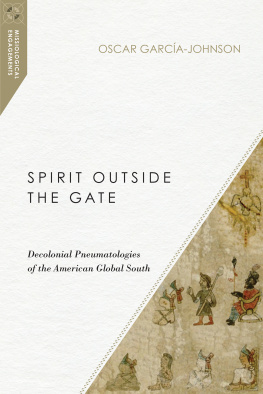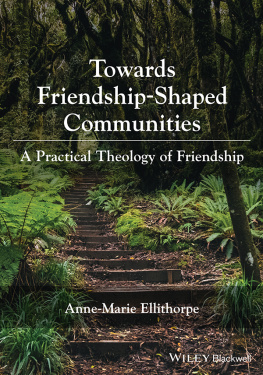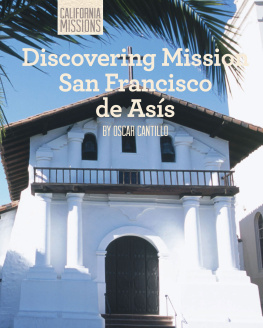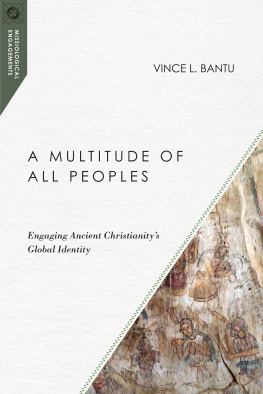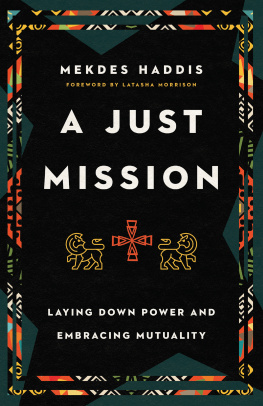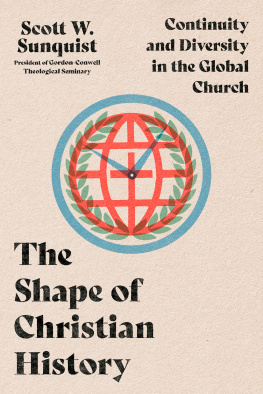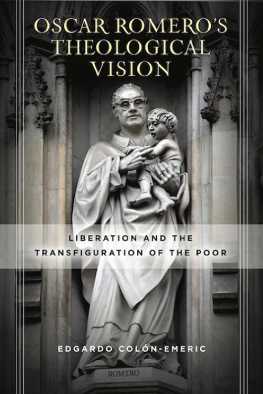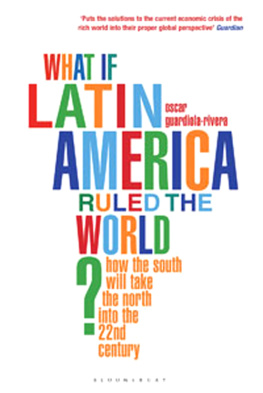All rights reserved. No part of this book may be reproduced in any form without written permission from InterVarsity Press.
InterVarsity Press is the book-publishing division of InterVarsity Christian Fellowship/USA, a movement of students and faculty active on campus at hundreds of universities, colleges, and schools of nursing in the United States of America, and a member movement of the International Fellowship of Evangelical Students. For information about local and regional activities, visit intervarsity.org.
Scripture quotations, unless otherwise noted, are from the New Revised Standard Version of the Bible, copyright 1989 by the Division of Christian Education of the National Council of the Churches of Christ in the USA. Used by permission. All rights reserved.
While any stories in this book are true, some names and identifying information may have been changed to protect the privacy of individuals.
Preface
An Amorphous Journey in Transoccidental Studies
A n impostor syndrome is as natural as any system of ideas that makes us experts on God. When we realize that, it puts our training in question and makes the inadequacy of our practice evident. When that form of ethno-racial tokenism is no longer tolerable, it requires immediate resolution and authentication.
My epistemic exodus within exile seeking for another way forward erupted as a nostalgic episode making me look south of the US border, to the Global South. Ideas circling around the vortex of Third World countries and interstitial spaces, awkwardly, did not let me leave home, my diasporan location in the States. Exodus within exile, I call it. Dizzy, unsteady, and unready, I arrived at a new intellectual horizon for my practice and theological imagination: Transoccidentality, if you will.
Let me begin by appropriating the biographical words of Olaf Stapledon, the British philosopher and science-fiction novelist, author of The Star Maker. In Jorge Luis Borgess review of Stapledons contribution, he writes, The review of his style, which advises an excess on abstract words, suggests that before writing literature he had read much philosophy and few novels or poems. In reference to his character and destiny, it is best to transcribe his own words.Fernando Valley, and an evangelical seminary in Pasadena, California. I planted churches, visited missions on three different continents, and for a decade led a denominational office comprising many congregations, just in time to flee from an imminent disaster.
As a professor of systematic theology, I learned the canonical texts, memorized the names of the classical heroes of the Western religion and the sacred history of a triumphant civilizing education disseminated by scholastic, mystical, and practical theologies. I taught passionately out of the fountain of my Western knowledge and my unrealized Latinx ministry experience for over a decade. An elite, middle-class-illustrated Latino, I purposed to educate immigrant pastors, second-generation Hispanic leaders, and the English-speaking community desiring like me to educate the disfranchised agrarian and urban Latinx population in America (the United States included). I taught in seminary, in the university, in my mission trips, in Bible institutes. But at the end I learned very little from my teaching.
My students, who were pastors and missionaries doing ministry mostly in the back alleys of urban America, taught me better. Their practical questions about ministry, global missions, culture, politics, society, family, lament and trauma, poverty and affluence, holy doctrines and holy heresies, were all questions of a context once mine and somehow lost in the process of education. Their questions were also once my own questions, the very reason for which I came to school to attain several degrees. And yet there I was, with four new church plants under my belt; a regional ministry giving leadership to over more than two hundred American Baptist churches (sixty Latinxs); an adjunct teaching post in one of the largest evangelical seminaries of the world; and teaching the laity on Bible, spirituality, and doctrine in a thriving Bible institute in Santa Ana. The realization of my intellectual condition of alienation came slowly after I had acquired my doctoral degree and began to fully engage with theological leadership.
Memories, after all, are sources of knowledge. Originally, I came to seminary because of a Latinx and ministry question. But this question gradually morphed into a different set of questions subsumed under a more universal, significant, and overarching body of knowledge, which arguably is to give an account of the classical questions of Christianity, the church, and the Christian witness. That is to say, the premise for this epistemic transformation I had been an impostor. I needed to migrate. I needed exodus in the midst of exile.
And so, back to usurping Stapledons biography more literally this time: I woke up as a tired teenager at age [fifty]. Painfully, I am moving from a larval state into an amorphous and delayed adulthood.exodus in exile. The idea here is not two distinct and separate experiences and logics but onean intersectional and simultaneous existential collage.
Exodus as a biblical narrative points to a journey where a people begin to gain identity after slavery, to subscribe to normative ways for living together under Gods law, land, language, and custom. Exile points to displacement, a place for losing identity and social stability and where one learns to live with interstitial angst for that which one thought to be permanent, defining, elevatingan angst heightened to the degree that human flourishing is rendered void of significance by the diasporan conditions that have reterritorialized ones life in the land and the culture of the dominant other after one has been deprived of ones homeland.
And yet, out of the piles of accumulated ambiguity and the valley of wounded humanity, like the dry bones in the book of Ezekiel, the Spirit speaks a breath of life causing flesh to heal the human imagination and hope to determine history for those for five centuries chained behind the gates of nonpersonhood, servility, coloniality, and modernity. The evocations of life, like cries of newborns, are untranscribing by the mechanism of modern logic but nonetheless too familiar to our ears: Transoccidentality, trans-Americanity, decolonial pneumatology, mestizo(a)logyterms uncovered in my reawakening for the new ways of thinking discussed in this book. Readers will feel the power of these evocations when encountering a number of slashed and hyphenated terms in the following pages. Such is an inescapable task in the building of a new grammar and syntax proper to our Transoccidental discourse.

